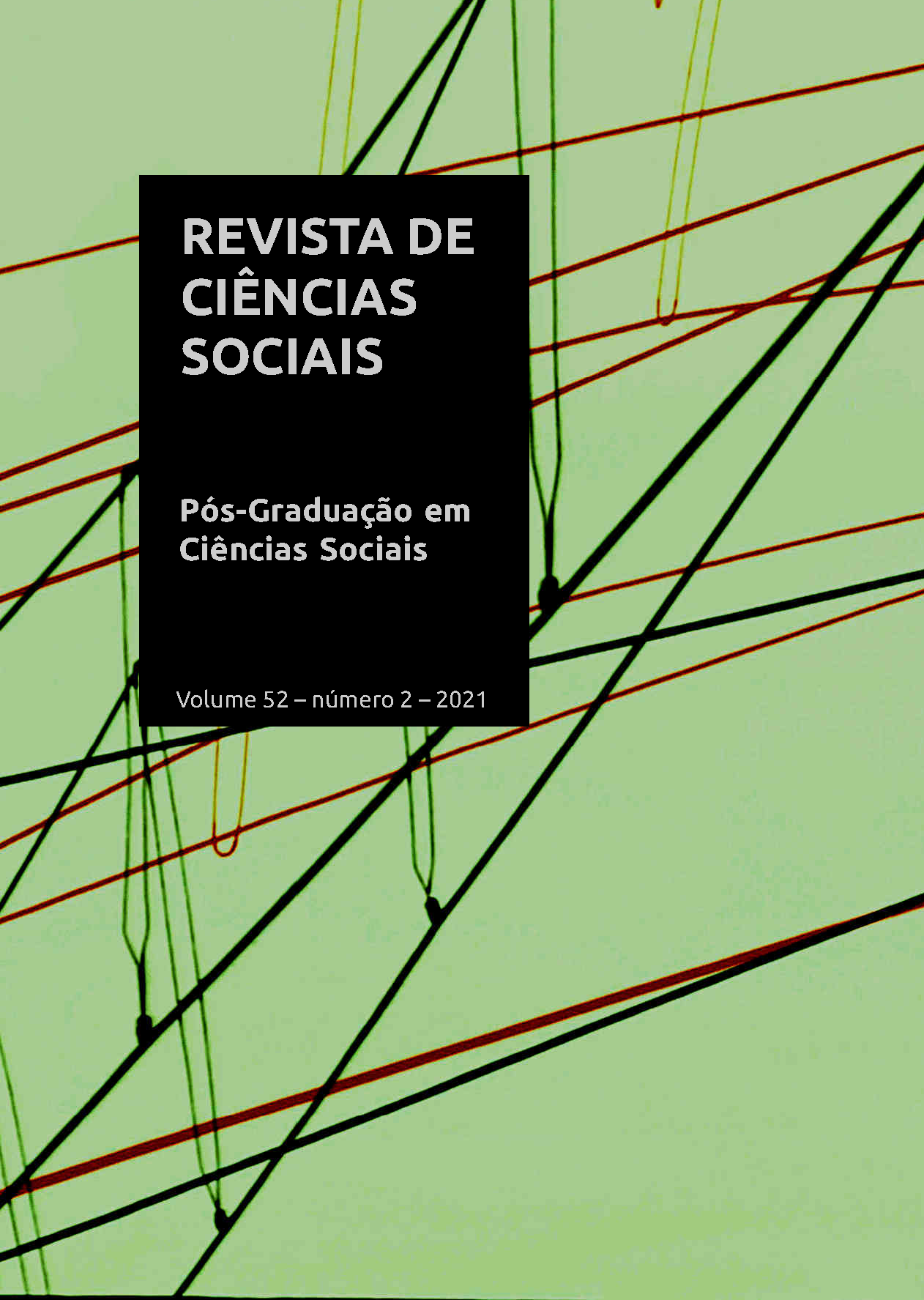From pain to gift
memory and trajectory of being transplanted
DOI:
https://doi.org/10.36517/rcs.52.2.a01Keywords:
organ transplant, sociability, subjectivityAbstract
This article focuses on the topic of organ transplantation and, more specifically, on the life of recipients after transplantation. The objective is to understand changes in the modes of subjectivity and sociability, considering that, although the incorporation of practical-cognitive elements arising from biomedicine is a key element of the analysis, its apprehension must be carried out from biographically determined situations. Therefore, based on ethnographic data produced in field research, the article presents and analyzes the trajectories of two transplant recipients, highlighting changes in lifestyle, worldview and social relations associated with organ transplantation. At the end, the article proposes a critical evaluation of the concept of biossociability.
Downloads
References
ALVES, Paulo. O discurso sobre a enfermidade mental. In: ALVES, P.; MINAYO, M. (org.). Saúde e doença: um olhar antropológico. Rio de Janeiro: Editora Fiocruz, 1994. p. 91-100.
DERRIDA, Jacques. The gift of death; and, literature in secret. Chicago: The University of Chicago Press, 2008.
FLEISCHER, Soraya; FRANCH, Mônica. Uma dor que não passa: aportes teórico-metodológicos de uma Antropologia das doenças compridas. Política & Trabalho Revista de Ciências Sociais, n. 42, 2015, p. 13-28.
FOUCAULT, Michel. História da sexualidade II: o uso dos prazeres. Rio de Janeiro: Edições Graal, 1984.
FOX, Renée; SWAZEY, Judith. Spare parts: organ replacement in american society. New York: Oxford University Press, 1992.
GENNEP, Arnold Van. Os ritos de passagem. Petrópolis: Vozes, 2011 [1909].
GOFFMAN, Erving. Manicômios, prisões e conventos. São Paulo: Editora Perspectiva, 1974.
JORALEMON, Donald. Organ wars: the battle for body parts. Medical Anthropology Quarterly, v. 9, 1995, p. 335-356.
MAUSS, Marcel. Ensaio sobre a dádiva: forma e razão da troca nas sociedades arcaicas. In: MAUSS, M. Sociologia e antropologia. São Paulo: Cosac & Naify, 2003 [1925]. p. 183-314.
MARTINS, R. L. Entre sonhos e quimeras: sociabilidade e experiência do corpo entre pessoas submetidas a transplante de órgãos. Dissertação (Mestrado em Antropologia) — Universidade Federal da Bahia. Salvador. 2009.
PEREIRA, Walter. Manual de transplantes de órgãos e tecidos. Rio de Janeiro: Guanabara Koogan, 2004.
RABINOW, Paul. Artificialidade e Iluminismo: da sociobiologia à biossociabilidade. In: BIEHL, J. (org.) Antropologia da razão: ensaios de Paul Rabinow. Rio de Janeiro: Relume Dumará, 1999. p. 135-157.
ROSE, Nikolas. The politics of life itself: biomedicine, power, and subjectivity in the twenty-first century. Princeton and Oxford: Princeton University Press, 2007.
SADALA, Maria. Doação de órgãos: a experiência de enfermeiras, médicos e familiares de doadores. São Paulo: UNESP, 2004.
SCHNEIDER, David. American kinship: a cultural account. Chicago: University of California Press, 1980 [1968].
SCHNEIDER, David. A critique of the study of kinship. Ann Arbor: University of Michigan Press, 1998.
SCHUTZ, Alfred. Collected papers I: the problem of social reality. London: Martinus Nijhoff, 1962.
SCHUTZ, Alfred. Sobre fenomenologia e relações sociais. Petrópolis: Vozes, 2012 [1970].
SHARP, Leslie. Organ transplantation as transformative experience: anthropological insights into the restructuring of self. Medical Anthropology Quarterly, v. 9, 1995, p. 357-389.
SHARP, Leslie. Commodified kin: death, mourning, and competing claims on the bodies of organ donors in the United States. American Anthropologist, v. 103, n. 1, 2001, p. 112-133.
SHARP, Leslie. Strange harvest: organ transplants, denatured bodies, and the transformed self. Berkeley, Los Angeles, London: University of California Press, 2006.
SQUE, Magi; PAYNE, Sheila. Dissonant loss: the experiences of donor relatives. Social Science and Medicine, v. 44, n. 3, 1996, p. 317-325.
STRATHERN, Marilyn. Kinship, law and the unexpected: relatives are always a surprise. New York: Cambridge University Press, 2005.
VIVEIROS DE CASTRO, Eduardo. The gift and the given: three nanoessays on kinship and magic. In: BAMFORD, S.; LEACH, J. (org.). Kinship and beyond: the genealogical model reconsidered. New York: Berghahn Books, 2009. p. 237-268.
WEISS, Gail. Body images — embodiment as intercorporeality. New York: Routledge, 1998.
Published
How to Cite
Issue
Section
License
Autores que publicam nesta revista concordam com os seguintes termos:- Autores mantém os direitos autorais e concedem à revista o direito de primeira publicação, com o trabalho simultaneamente licenciado sob a Creative Commons Attribution License, que permite o compartilhamento do trabalho com reconhecimento da autoria do trabalho e publicação inicial nesta revista.
- Autores têm autorização para assumir contratos adicionais separadamente, para distribuição não-exclusiva da versão do trabalho publicada nesta revista (ex.: publicar em repositório institucional ou como capítulo de livro), com reconhecimento de autoria e publicação inicial nesta revista.
- Autores têm permissão e são estimulados a publicar e distribuir seu trabalho online (ex.: em repositórios institucionais ou na sua página pessoal) a qualquer ponto antes ou durante o processo editorial, já que isso pode gerar alterações produtivas, bem como aumentar o impacto e a citação do trabalho publicado (Veja O Efeito do Acesso Livre).



